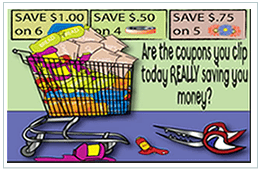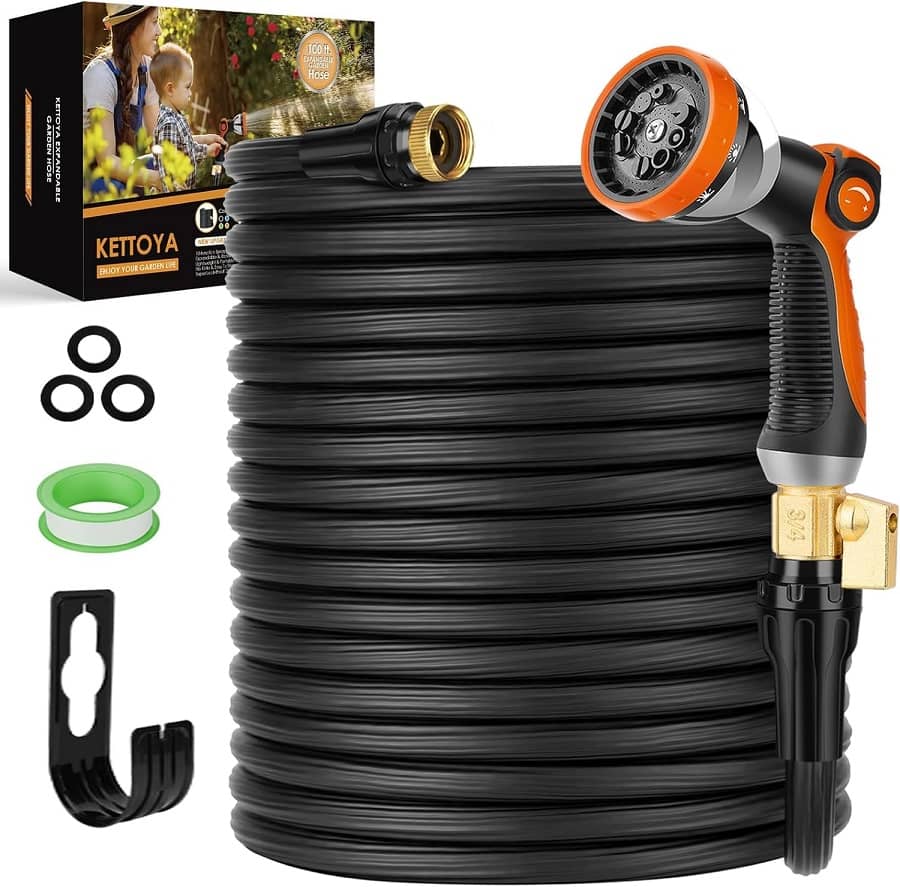When it comes to managing your finances, the path to financial freedom may seem daunting, especially for low-income families. However, with the right mindset and a few strategic techniques, you can take charge of your financial situation and make your hard-earned money go further than you ever thought possible. In this comprehensive guide, we will provide you with practical and effective budgeting tips to help you navigate the financial landscape and pave your way towards a brighter future.
Embrace the Power of Budgeting
When it comes to managing your finances, the key to success lies in embracing your budget. Think of it as your trusted guide rather than a daunting monster hiding under your bed. Your budget is like a roadmap that leads you to financial freedom and empowers you to take control of your financial destiny. So, take a moment to sit down, take a deep breath, and start planning where your hard-earned money will go.
Remember, your budget is a tool that helps you assign each dollar a specific purpose. By allocating your income to various categories such as essential expenses, savings, and debt repayment, you can ensure that your money is working for you, not the other way around. Embrace the fact that you are the boss of your money, and it's up to you to make it work towards your financial goals.
As you
create your budget, keep in mind that it's a flexible tool that can be customized to suit your needs and priorities. Tailor it to your unique situation, taking into account your income, expenses, and financial goals. Whether you prefer using a spreadsheet, budgeting app, or pen and paper, choose a method that resonates with you and helps you stay organized.
Remember, your budget is not about restriction; it's about empowerment. It allows you to make conscious decisions about your spending and prioritize what truly matters to you. By aligning your financial choices with your values and goals, you can make the most of your money and move closer to the financial freedom you desire.
So, let go of any fears or hesitations and embrace your budget as a powerful tool on your financial journey. With each dollar assigned a job and a clear plan in place, you can navigate the twists and turns of your financial landscape with confidence and control. Take charge of your financial destiny and let your budget be the guiding light that leads you to a brighter and more prosperous future.
Budgeting on a low income requires discipline, creativity, and perseverance. By implementing these tips and techniques, you can take control of your finances, maximize your resources, and move closer to financial freedom. Remember, every small step you take towards effective budgeting and mindful spending is a step towards a brighter and more secure future.
Establish Clear Priorities: Needs vs. Wants
In the realm of financial decision-making, it's crucial to distinguish between needs and wants. Needs encompass the essentials that are necessary for survival and well-being, such as food, shelter, clothing, and healthcare. Wants, on the other hand, are the extras and luxuries that enhance our lives but aren't essential for our basic needs.
To effectively manage your limited resources, it's important to prioritize your needs over your wants. By focusing on fulfilling your needs first, you ensure that the essentials are covered and that you and your family have a solid foundation for a secure and stable life. This means allocating a significant portion of your budget towards items like groceries, rent or mortgage payments, utilities, and healthcare expenses.
Once your needs are adequately addressed, you can then consider allocating a portion of your resources towards fulfilling your wants. This may include indulging in occasional treats, saving for a vacation, or purchasing non-essential items that bring you joy. It's all about finding a balance between meeting your needs and enjoying some of life's pleasures.
By prioritizing your needs and wants, you can make informed decisions about how to allocate your financial resources. This can help prevent overspending on unnecessary items or indulgences that can jeopardize your financial stability. It's about making deliberate choices that align with your financial goals and values.
However, it's important to note that striking a balance between needs and wants is a personal process that may vary from one individual or family to another. Everyone's circumstances and financial priorities are unique. What matters most is finding a balance that works for you and your specific situation.
Remember, prioritizing needs over wants doesn't mean completely depriving yourself of enjoyment or denying yourself any extras in life. It simply means being mindful of your financial limitations and ensuring that your essential needs are met first. By establishing clear priorities and making conscious choices, you can navigate your financial journey with greater confidence and resilience.
So, take a step back and assess your needs and wants. Make informed decisions about how to allocate your financial resources, keeping in mind the importance of finding a balance that supports your long-term financial well-being. By prioritizing your needs and making thoughtful choices, you'll be on your way to achieving financial stability and a more secure future.
Monitor Your Expenses: Every Penny Counts
To effectively manage your finances, it's essential to track every penny that flows in and out of your wallet. Think of it as a fitness tracker for your finances. By closely monitoring your expenses, you gain valuable insights into your spending habits and can make more informed decisions about your financial priorities.
Tracking your expenses provides a clear picture of where your money is really going. It allows you to identify areas where you may be overspending or where you can make adjustments to save more effectively. Fortunately, there are numerous tools available to assist you in this process, ranging from free mobile apps designed specifically for expense tracking to the traditional pen-and-paper method.
Modern technology has made it easier than ever to track your expenses conveniently. Many free apps allow you to categorize and analyze your spending patterns, providing visual representations of your financial habits. These tools can help you identify areas where you might be overspending, such as dining out or entertainment, allowing you to make more conscious choices and adjust your budget accordingly.
If you prefer a more hands-on approach, a simple pen and paper can also serve as an effective tracking method. Create a ledger or a budgeting journal, where you record your income and expenses manually. This method provides a tangible and visible representation of your financial transactions, helping you stay accountable and aware of your spending habits.
The key is to cultivate awareness of your financial behavior. Once you have a clear understanding of where your money is going, you can make adjustments and prioritize your spending according to your financial goals. You may discover that small, recurring expenses can add up over time, and by eliminating or reducing them, you can free up additional funds for more important priorities.
Remember, tracking your expenses is not about restricting yourself or feeling guilty about your spending. It's about empowering yourself to make conscious choices that align with your financial goals and values. It enables you to identify areas where you can make adjustments and find opportunities to save money or redirect it toward more meaningful endeavors.
So, start monitoring your expenses today. Embrace the technology available or grab a pen and paper—whichever method works best for you. By tracking every penny, you'll gain valuable insights into your financial habits, make more informed decisions, and take control of your financial future.
Be a Savvy Shopper: Stretch Your Dollars Further
When it comes to managing your budget, shopping smart is a powerful tool that can help you make the most of every hard-earned penny. By adopting a few savvy shopping strategies, you can maximize your savings and get the most bang for your buck. Here are some tips to help you become a savvy shopper:
Keep an eye out for sales: Before making any purchase, take the time to research and compare prices.
Look for sales and discounts both online and in physical stores. Many retailers offer seasonal promotions, holiday sales, or clearance events where you can score significant savings. By being patient and waiting for the right time to buy, you can often find the same items at a fraction of the original price.
Harness the power of coupons: Coupons are a fantastic way to save money on your purchases.
Look for coupons in newspapers, magazines, or online coupon websites. Many retailers also offer digital coupons or loyalty programs that can help you unlock exclusive discounts. Take the time to clip, print, or download coupons for the items you need. The savings can quickly add up, allowing you to stretch your budget further.
Consider buying in bulk: Buying in bulk can be a smart strategy for saving money, particularly for items that have a long shelf life or that you frequently use. Warehouse clubs or wholesale stores often offer discounted prices when you purchase items in larger quantities. Be mindful of your needs and storage space to ensure that buying in bulk makes sense for your household. It's important to compare the unit price to determine if the bulk purchase is truly a cost-effective option.
Explore thrift stores and garage sales: Thrift stores and garage sales can be hidden treasure troves for budget-conscious shoppers. These venues offer a wide range of gently used items at significantly discounted prices. From clothing and furniture to books and appliances, you never know what gems you might find if you're willing to dig a little. Not only can you save money, but you'll also contribute to recycling and sustainable practices by giving pre-loved items a second life.
Shop with a purpose: Avoid impulse purchases by going shopping with a clear plan and a list of items you need. Stick to your list and avoid distractions or unnecessary splurges. By shopping with a purpose, you can minimize impulse spending and ensure that every purchase aligns with your budget and priorities.
Remember, shopping smart is not about depriving yourself or sacrificing quality. It's about being resourceful, staying informed, and finding the best deals that suit your needs. By being mindful of sales, utilizing coupons, considering bulk purchases, and exploring second-hand options, you can save a significant amount of money and stretch your budget further.
Embrace Home Cooking: Nourish Your Budget and Family Bonds
In a world filled with tempting takeout options and enticing restaurant menus,
cooking at home may seem like a daunting task. However, when it comes to managing your budget and promoting healthier eating habits, embracing the art of home cooking can be a game-changer. Not only does cooking at home allow you to save money, but it also offers an opportunity to bond with your family and explore your culinary creativity. Here's why cooking at home is a win-win situation:
Savings that add up: Eating out frequently can take a toll on your budget, with restaurant bills quickly adding up. On the other hand, cooking at home allows you to take control of your food expenses. By planning your meals, buying ingredients in bulk, and utilizing leftovers creatively, you can significantly reduce your overall food costs. The money saved from cooking at home can be put towards other essential expenses or saved for future goals.
Healthier choices: When you cook at home, you have full control over the ingredients you use. This means you can choose fresher and healthier options, and tailor your meals to meet any specific dietary needs or restrictions. By preparing meals with whole grains, lean proteins, and a variety of fruits and vegetables, you can nourish your family's bodies while promoting their overall well-being.
Quality family time: Cooking at home presents an excellent opportunity to bring your family together and strengthen your bonds. Involve your loved ones in the meal preparation process. Assign tasks to each family member, allowing everyone to contribute and share responsibilities. This shared experience not only promotes teamwork but also creates lasting memories and valuable conversations around the dinner table.
Unleash your culinary creativity: Cooking at home provides a canvas for your culinary creativity to flourish. Experiment with new recipes, explore different flavors, and challenge yourself to recreate your favorite restaurant dishes. Encourage your family members to share their ideas and preferences, and make cooking a fun and enjoyable experience for everyone involved. You may discover hidden talents or develop a signature family recipe that will be cherished for years to come.
Make it a game: Turn cooking into a game by challenging yourself to create delicious meals using ingredients you already have on hand. Take inventory of your pantry, refrigerator, and freezer, and let your creativity guide you in whipping up unique and tasty dishes. This not only helps minimize food waste but also saves you money by utilizing what you already have instead of buying additional ingredients.
Cooking at home is a multi-faceted solution that allows you to save money, prioritize health, and strengthen family bonds. It's an opportunity to take control of your budget, savor wholesome meals, and foster meaningful connections with your loved ones. So, put on your apron, gather your family in the kitchen, and embark on a culinary adventure that not only satisfies your taste buds but also nourishes your financial well-being and family relationships.
Harness the Power of Meal Planning: Save Money and Reduce Food Waste
Meal planning is a powerful tool that can revolutionize your approach to cooking and grocery shopping. By taking a little time to plan your meals in advance, you can unlock a world of financial savings, reduce food waste, and eliminate the stress of figuring out what to cook every night. Here's how meal planning can benefit your budget and make your culinary journey more enjoyable:
Maximize savings: One of the key advantages of meal planning is the ability to optimize your grocery shopping and take advantage of sales and discounts. Before heading to the store, scan through weekly flyers or browse online for deals on ingredients you frequently use or items that are on your meal plan. By basing your meals around these discounted items, you can significantly lower your grocery bill and stretch your budget further.
Utilize what you have: Meal planning encourages you to inventory your pantry, refrigerator, and freezer to see what ingredients you already have on hand. By incorporating these ingredients into your meal plan, you can avoid unnecessary purchases and make the most of what you already own. Not only does this save you money, but it also helps to reduce food waste, as you're using up ingredients before they expire.
Minimize food waste: Food waste is not only detrimental to your wallet but also to the environment. Meal planning allows you to be intentional with your ingredient usage, ensuring that you're utilizing everything you purchase and reducing the likelihood of items going to waste. By planning your meals, you can strategize ways to repurpose leftovers or incorporate them into future recipes, minimizing waste and maximizing your resources.
Efficient time management: Planning your meals in advance saves you time and eliminates the stress of figuring out what to cook each day. With a well-thought-out meal plan, you can streamline your cooking process, prep ingredients ahead of time, and even batch cook meals to enjoy throughout the week. This not only saves you valuable time but also helps you avoid the temptation of ordering takeout or dining out due to lack of meal ideas.
Variety and dietary considerations: Meal planning allows you to incorporate a variety of flavors, cuisines, and nutritional considerations into your weekly menu. You can experiment with new recipes, rotate different protein sources, and ensure a balanced and well-rounded diet for you and your family. By planning your meals, you have the opportunity to prioritize your health goals and dietary preferences while keeping your budget in check.
Getting started with meal planning is simple. Set aside some time each week to plan your meals, create a grocery list based on your plan, and stick to it when you go shopping. Consider involving your family members in the process and gather their input on meal ideas and preferences. With practice, you'll become more efficient in meal planning and reap the benefits of financial savings, reduced food waste, and stress-free mealtimes.
Meal planning is a powerful strategy that empowers you to take control of your budget, reduce waste, and enjoy a wide variety of delicious and nutritious meals. By incorporating this practice into your routine, you'll not only save money but also cultivate a sense of organization and efficiency in your kitchen. So, grab a pen, start brainstorming meal ideas, and embark on a culinary adventure that brings financial stability, reduces waste, and delights your taste buds.
Harness the Power of Automated Savings: Effortlessly Build a Safety Net
Saving money doesn't have to be a daunting task. In fact, with the magic of automation, you can effortlessly grow your savings and build a financial safety net without even lifting a finger. By setting up automated savings, you'll be putting your money on autopilot, allowing it to grow steadily over time. Here's why automating your savings is a game-changer:
Set it and forget it: When you automate your savings, you're essentially creating a system where a predetermined amount of money is regularly transferred from your checking account to your savings account. This eliminates the need for constant manual transfers or remembering to save each month. Once you set it up, you can forget about it and let the system work its magic.
Small amounts make a big difference: Even if you can only save a few dollars a month, those seemingly small amounts can add up significantly over time. The power of compounding interest means that your savings will grow exponentially, and the earlier you start, the more time your money has to multiply. Automating your savings allows you to consistently contribute, no matter how small the amount, ensuring that your money is working for you.
Out of sight, out of mind: By automating your savings, you remove the temptation to spend the money that could have been saved. Since the transfer happens automatically, the money is whisked away to your savings account before you even have a chance to think about spending it. It's a psychological trick that helps you prioritize your long-term financial goals over short-term impulses.
Build a safety net: Life is full of unexpected surprises, and having a financial safety net is crucial for weathering those storms. By automating your savings, you're taking proactive steps towards building that safety net. Over time, your savings will accumulate, providing a cushion to handle emergencies, unexpected expenses, or to pursue future goals with confidence.
Get started with ease: Setting up automated savings is easier than ever. Most banks and financial institutions offer online banking platforms that allow you to set up recurring transfers between your accounts. Simply determine the amount you wish to save and the frequency (e.g., monthly or bi-weekly), and the system will take care of the rest. It's a one-time setup that can have long-lasting benefits.
Automating your savings is a smart and effortless way to prioritize your financial future. By consistently setting aside money, even in small increments, you're building a solid foundation for your financial well-being. Take the first step today by contacting your bank or exploring the online banking options available to you. With each automated transfer, you're making a commitment to yourself and your financial goals.
Embrace the Era of Online Streaming: Say Goodbye to Costly Cable Bills
Gone are the days when cable TV was the only source of entertainment in our living rooms. With the rise of
online streaming services, it's easier than ever to access a wide variety of shows and movies at a fraction of the cost. Here's why cutting the cable cord and embracing online streaming can save you a bundle:
Endless options at your fingertips: Online streaming services offer a vast library of content, from popular TV shows and movies to original series and documentaries. With a multitude of platforms to choose from, you can tailor your streaming subscriptions to your specific interests, ensuring that you have access to the content you love most.
Ditch the cable bill: Cable TV subscriptions often come with hefty monthly bills that can put a strain on your budget. By cutting the cable cord and switching to online streaming services, you can significantly reduce your monthly expenses. Streaming services typically offer flexible subscription plans at a fraction of the cost of traditional cable packages, allowing you to save money without sacrificing your entertainment options.
Customize your viewing experience: With online streaming, you have the power to customize your viewing experience. Most streaming platforms offer personalized recommendations based on your preferences, making it easier to discover new shows and movies that align with your interests. You can create your own playlists, binge-watch entire seasons at your own pace, and even share recommendations with friends and family.
Flexibility and convenience: Online streaming provides unparalleled flexibility and convenience. You can stream your favorite shows and movies on multiple devices, including smartphones, tablets, smart TVs, and laptops, giving you the freedom to watch whenever and wherever you want. No more waiting for a specific time slot or dealing with commercials—streaming puts you in control of your viewing experience.
Embrace the streaming revolution: Transitioning from cable to online streaming is a simple switch that can save you a bundle in the long run. Explore different streaming platforms and compare subscription plans to find the ones that best suit your preferences and budget. You'll be surprised at how much you can save without compromising on quality entertainment.
Cutting the cable cord and embracing online streaming is a cost-effective and flexible solution for staying entertained. Take advantage of the vast array of streaming options available and customize your viewing experience to suit your preferences. With the money you save on cable bills, you can allocate those funds towards other essential expenses or even treat yourself to something special.
Opt for Sustainable and Cost-Effective Transportation: Embrace Public Transit
When it comes to getting around, owning a car can be a significant financial burden. However, there's a sustainable and cost-effective alternative that not only helps you save money but also contributes to a greener future: public transportation. Here are some reasons why you should consider using public transit whenever possible:
Save on transportation expenses: Public transportation offers a wallet-friendly alternative to the high costs associated with owning a car. By using buses, trains, trams, or subways, you can eliminate expenses such as fuel, car insurance, parking fees, and maintenance. Over time, these savings can add up significantly, leaving you with more money in your pocket.
Reduce your carbon footprint: Transportation is a major contributor to greenhouse gas emissions. By using public transit, you can actively contribute to reducing air pollution and combating climate change. Public transportation systems are designed to transport multiple individuals in a single vehicle, resulting in fewer cars on the road and lower emissions per passenger.
Avoid traffic and parking hassles: We've all experienced the frustrations of sitting in traffic or circling endlessly to find parking. Public transportation eliminates these headaches, allowing you to bypass congested roads and crowded parking lots. With fixed routes and dedicated lanes, public transit can often provide a faster and more efficient way to reach your destination, saving you time and stress.
Enjoy a stress-free commute: Public transportation offers you the opportunity to relax, read, catch up on emails, or simply enjoy some downtime during your commute. Instead of dealing with the challenges of driving, you can use this time to engage in activities that bring you joy or enhance your productivity. A stress-free commute can significantly improve your overall well-being and quality of life.
Embrace the community aspect: Public transportation brings people from diverse backgrounds together, creating a sense of community. You might strike up a conversation with a fellow commuter, meet new friends, or gain a deeper understanding of your city by interacting with people from different walks of life. Public transit allows you to connect with your community in a unique way.
Before you dismiss the idea of using public transportation, take some time to explore the options available in your area. Research the routes, schedules, and fares of buses, trains, and other forms of public transit. You may be pleasantly surprised by the convenience and affordability they offer.
While public transportation may not be feasible for every journey, incorporating it into your daily routine can help you save money, reduce your environmental impact, and even enhance your overall well-being. By choosing sustainable transportation options, you're making a conscious decision to prioritize both your financial health and the health of our planet.
Embrace the Power of DIY: Save Money and Unleash Your Creativity
In a world where convenience often comes with a hefty price tag, there is something empowering about taking matters into your own hands. From home repairs to crafting personalized gifts, embracing the do-it-yourself (DIY) mindset can not only save you a significant amount of money but also ignite your creativity and bring a sense of fulfillment. Here's why you should consider DIY whenever possible:
Cost savings: One of the most obvious advantages of
DIY projects is the potential for significant cost savings. By tackling tasks yourself instead of hiring professionals or purchasing pre-made products, you can cut down on labor costs and avoid the markup typically associated with ready-made items. Whether it's repairing a leaky faucet, sewing your own clothes, or building a piece of furniture, the money you save can be put towards other essential needs or even saved for future goals.
Learning and personal growth: DIY projects provide an excellent opportunity to expand your knowledge and develop new skills. Engaging in hands-on activities allows you to learn at your own pace, explore your interests, and challenge yourself in new ways. With countless online tutorials, forums, and communities available, you can easily find guidance and support to help you master various DIY endeavors. As you acquire new skills, you gain confidence and independence, empowering you to tackle even more ambitious projects.
Customization and personal touch: DIY projects allow you to add a personal touch and create unique items tailored to your preferences. Whether you're refurbishing furniture, designing custom artwork, or crafting handmade gifts, you have the freedom to choose colors, materials, and styles that resonate with your individual taste. This personalization not only adds character to your creations but also makes them extra special when shared with loved ones.
Environmental sustainability: By embracing DIY, you contribute to a more sustainable lifestyle. Many mass-produced items come with a significant carbon footprint due to manufacturing processes, transportation, and packaging waste. By repurposing or upcycling materials, using eco-friendly alternatives, or reducing overall consumption through DIY projects, you actively reduce your environmental impact and promote a greener way of living.
Emotional well-being: Engaging in creative and productive activities has been linked to improved mental health and overall well-being. DIY projects provide a sense of accomplishment, satisfaction, and pride in the work you've done with your own hands. The process of creating something tangible can be cathartic, allowing you to unwind, destress, and express your individuality.
Remember, DIY doesn't mean you have to be an expert from the start. Start small with simple projects that align with your interests and gradually work your way up. The internet is a vast resource, offering step-by-step instructions, video tutorials, and DIY communities eager to share their knowledge and experiences.
Harness the Power of Energy Conservation: Cut Utility Costs and Contribute to a Sustainable Future
In today's world, where energy consumption is a significant contributor to both monthly expenses and environmental impact, finding ways to save on utilities is a win-win situation. By making a few simple changes to your daily habits and embracing energy conservation, you can make a noticeable difference in your utility bills while also reducing your carbon footprint. Here are some practical tips to help you save on utilities:
Lighting efficiency: One of the easiest ways to save on electricity is by optimizing your lighting habits. Make it a habit to turn off lights when leaving a room, utilize natural light whenever possible, and switch to energy-efficient light bulbs such as LED or CFLs. These bulbs not only last longer but also consume significantly less energy, leading to substantial savings over time.
Power management: Unplug electronics and appliances when they're not in use. Many devices continue to draw power even when they're turned off, contributing to "phantom" or "vampire" energy consumption. Utilize power strips or smart plugs to easily disconnect multiple devices at once. By being mindful of standby power usage, you can prevent unnecessary energy wastage and reduce your utility bills.
Efficient water usage: Water conservation not only saves on your water bill but also helps preserve this precious resource. Install low-flow showerheads and faucets to reduce water consumption during showers and daily tasks. Repair any leaks promptly and make sure to only run full loads in your dishwasher and washing machine. Additionally, consider collecting rainwater for outdoor use, such as watering plants or cleaning.
Temperature control: Adjusting your thermostat by just a few degrees can make a significant impact on your heating and cooling costs. During colder months, lower your thermostat and make use of blankets and layered clothing to stay cozy. In warmer months, use fans and natural ventilation before resorting to air conditioning. Installing a programmable thermostat can also help you optimize temperature settings according to your daily schedule.
Insulation and weatherproofing: Proper insulation and weatherproofing can enhance the energy efficiency of your home. Seal gaps around windows and doors to prevent drafts and heat loss. Consider adding insulation to your walls, attic, and floors to minimize temperature transfer and reduce the strain on your heating and cooling systems.
Smart appliance usage: Make the most of energy-efficient settings and features on your appliances. Use cold water for laundry whenever possible, set your refrigerator to the recommended temperature, and allow dishes to air dry instead of using the heated drying cycle in your dishwasher. These small adjustments can result in noticeable energy savings.
Remember, saving on utilities is not about drastic lifestyle changes but rather a series of conscious choices that can add up over time. By implementing these energy-saving practices, you not only reduce your monthly expenses but also contribute to a sustainable future by conserving valuable resources.
Embrace the Thrifty Lifestyle: Unlock Savings and Reduce Environmental Impact
In a world where consumerism often encourages us to buy new, embracing the thrifty lifestyle can be a game-changer for your finances and the environment. Buying used items, whether it's clothing, furniture, electronics, or even vehicles, not only helps you save a significant amount of money but also promotes sustainability by reducing waste. Here are some compelling reasons to consider buying used:
Cost savings: Purchasing used items is an excellent way to stretch your budget further. Pre-owned goods are typically priced at a fraction of their original cost, allowing you to access quality items without breaking the bank. Whether you're shopping at thrift stores, browsing online marketplaces, or exploring garage sales, you'll often find fantastic deals and unique treasures waiting to be discovered.
Environmental impact: Opting for used items contributes to a more sustainable future by reducing the demand for new production. Manufacturing new products consumes valuable resources and releases greenhouse gases into the atmosphere. By giving a second life to pre-owned items, you help conserve raw materials, reduce energy consumption, and minimize waste that would otherwise end up in landfills.
Variety and uniqueness: Shopping for used items opens up a world of variety and uniqueness. You'll come across vintage pieces, one-of-a-kind finds, and items with character and history. Whether you're looking to enhance your wardrobe, furnish your home, or find collectibles, buying used allows you to express your personal style in a more distinctive and affordable way.
High-quality options: Many used items are still in excellent condition, often gently used or well-maintained by their previous owners. You can find durable, high-quality goods that may outlast their brand-new counterparts. From solid wood furniture to designer clothing, buying used doesn't mean compromising on quality.
Community support: Shopping for used items contributes to local communities. Thrift stores and small businesses often provide employment opportunities and support charitable causes. By patronizing these establishments, you're not only getting great deals but also supporting initiatives that benefit the community around you.
To make the most of your thrifty adventures, keep these tips in mind:
- Do your research: Before making a purchase, research the item's market value and condition. This knowledge will help you make informed decisions and ensure you're getting a fair deal.
- Inspect and ask questions: When buying used, carefully inspect the item for any flaws or damages. Don't hesitate to ask the seller questions about its history, maintenance, or any other relevant details.
- Negotiate politely: In many cases, the price of used items is negotiable. Polite negotiation can sometimes lead to even better deals, but remember to be respectful and considerate during the process.
- Donate and sell your own items: Embrace the cycle of buying and selling by donating or selling your own gently used items. By passing them on to others, you contribute to the thriving second-hand market while decluttering your own space.
- Spread the word: Share your thrifty finds and experiences with friends and family. Encourage others to consider buying used and join the movement towards a more sustainable and affordable lifestyle.
So, whether you're looking to revamp your wardrobe, furnish your home, or find unique treasures, buying used is a smart and eco-friendly choice. Embrace the thrill of the hunt, support your local community, and enjoy the incredible savings that come with buying pre-owned. Let your thrifty adventures begin!
Take Control of Your Finances: Pay Down Debt
Debt can feel like a heavy burden, limiting your financial freedom and causing stress. However, with determination and a strategic approach, you can regain control of your finances and pave the way towards a debt-free future. Here are some
tips to help you pay down your debt and achieve greater financial freedom:
Assess your debt: Start by gathering all your debt information, including outstanding balances, interest rates, and minimum payment requirements. This comprehensive overview will give you a clear picture of your financial obligations.
Prioritize high-interest debt: Identify the debts with the highest interest rates, such as credit cards or personal loans. These tend to cost you more in the long run, so allocate more funds towards paying them off first. By focusing on high-interest debt, you'll save money on interest charges and expedite your path to financial freedom.
Create a budget: Develop a realistic budget that considers your income, expenses, and debt repayment goals. Allocate a portion of your income specifically for debt repayment, making sure to cover the minimum payments for all debts while allocating extra funds towards your prioritized debts.
Cut expenses and increase income: Look for ways to reduce your expenses and free up additional funds for debt repayment. Consider trimming unnecessary expenses, such as dining out or subscription services. Additionally, explore opportunities to increase your income, such as taking on a part-time job or freelance work.
Consider debt consolidation: If you have multiple debts with varying interest rates, debt consolidation may be an option worth exploring. Consolidating your debts into a single loan or credit card with a lower interest rate can simplify your payments and potentially save you money on interest charges.
Negotiate with creditors: Reach out to your creditors to explore opportunities for negotiation. They may be willing to lower your interest rate, offer a temporary reduction in payments, or provide a more favorable repayment plan. Remember, it never hurts to ask, and creditors often prefer to work with borrowers who are proactive in addressing their debt.
Stay motivated and celebrate milestones: Paying down debt requires discipline and perseverance. Keep yourself motivated by celebrating milestones along the way. Set small achievable goals and reward yourself when you reach them. This positive reinforcement will help you stay focused and committed to your debt repayment journey.
Seek professional advice if needed: If you're feeling overwhelmed or unsure about how to tackle your debt, consider seeking advice from a financial professional. They can provide personalized guidance based on your unique situation and help you develop a comprehensive debt repayment strategy.
Remember, paying down debt takes time and dedication, but the rewards are significant. As you gradually eliminate your debts, you'll experience increased financial freedom, reduced stress, and the ability to allocate your hard-earned money towards building a brighter future. Stay committed to your debt repayment goals, make informed financial decisions, and envision the debt-free life that awaits you.
Cultivate Your Green Thumb: Grow Your Own Food and Reap the Rewards
Imagine stepping outside your door and plucking fresh, vibrant produce straight from your own garden.
Starting a garden not only allows you to savor the satisfaction of growing your own food but also provides numerous benefits for your budget, health, and family bonding. Here's why you should consider starting a garden:
Cost savings: Growing your own fruits, vegetables, and herbs can significantly reduce your grocery expenses. Instead of purchasing these items at the store, you can enjoy an abundant harvest from your own backyard. The savings can quickly add up, especially during peak growing seasons when prices tend to rise.
Fresh and flavorful: There's nothing quite like the taste of freshly picked produce. Homegrown fruits and vegetables are often more flavorful, as they are allowed to ripen naturally on the plant. By having a garden, you can experience the joy of savoring your own delicious, nutrient-rich produce.
Health benefits: A garden is a source of not only tasty delights but also nutritious goodness. By growing your own food, you have full control over the cultivation process, including the use of pesticides and fertilizers. You can opt for organic methods, ensuring that your produce is free from harmful chemicals and pesticides.
Connection with nature: Gardening provides an opportunity to connect with nature and experience the joy of nurturing living plants. It's a calming and therapeutic activity that allows you to spend time outdoors, breathe fresh air, and immerse yourself in the beauty of the natural world. Involving your family in gardening fosters a sense of responsibility, patience, and appreciation for the environment.
Educational and fun: Gardening is a wonderful learning experience for children and adults alike. It offers a hands-on opportunity to understand the lifecycle of plants, the importance of soil health, and the wonders of nature. Kids can learn about where their food comes from, the importance of sustainable practices, and develop a love for gardening that can last a lifetime.
Getting started with your garden:
- Assess your space: Determine the available space in your yard or balcony for a garden. If you have limited space, container gardening or vertical gardening techniques can be excellent options.
- Choose the right plants: Consider the climate, sunlight, and soil conditions in your area when selecting plants. Opt for vegetables, fruits, and herbs that are well-suited to your environment and align with your family's preferences.
- Plan and prepare: Sketch out a garden layout and decide which plants to grow. Prepare the soil by removing any weeds or debris and enriching it with compost or organic matter.
- Start small: If you're new to gardening, start with a few easy-to-grow plants and gradually expand your garden as you gain confidence and experience.
- Maintain and nurture: Regularly water, fertilize, and protect your plants from pests and diseases. Monitor their growth and make adjustments as needed to ensure optimal conditions for a bountiful harvest.
- Involve the family: Engage your family members in the gardening process. Assign age-appropriate tasks, teach them about plant care, and encourage them to take pride in the fruits of their labor.
By starting a garden, you embark on a rewarding journey of self-sufficiency, sustainable living, and enjoying the simple pleasures of nature. Embrace the wonders of gardening, and watch as your efforts blossom into a source of nourishment, savings, and cherished memories for your family.
Embrace the Joy of Free Entertainment: Explore Your Community's Cultural Treasures
Entertainment doesn't have to come with a hefty price tag. In fact, there are numerous free and delightful activities waiting to be discovered right in your community. By seeking out these local treasures, you can enjoy enriching experiences without straining your budget. Here are some wonderful ways to find free entertainment:
Community events: Keep an eye out for free concerts, festivals, art exhibitions, and cultural events happening in your city. Many communities host regular events that showcase local talent and provide opportunities for residents to come together and celebrate. Check local event listings, community bulletin boards, or online platforms for upcoming happenings.
Parks and nature exploration: Take advantage of the natural beauty around you by visiting local parks, nature reserves, and hiking trails. Enjoy a leisurely stroll, have a picnic, or organize a family-friendly outdoor adventure. Nature has a way of providing endless entertainment and serenity, free of charge.
Libraries: Your local library is a treasure trove of free entertainment. Explore the shelves for books, magazines, and DVDs that you can borrow and enjoy at home. Many libraries also offer free activities such as storytelling sessions, book clubs, workshops, and lectures. It's a great way to expand your knowledge and engage with your community.
Online resources: The internet is a vast source of free entertainment. Take advantage of platforms like YouTube, where you can find an abundance of music, educational videos, documentaries, and entertaining content. You can also explore podcasts, blogs, and online forums that cater to your interests, providing hours of engaging and informative entertainment.
Local sports events: Keep an eye out for local sports events or amateur leagues in your area. Attending a community sports game, whether it's baseball, soccer, or basketball, can be an exciting and lively experience. Cheering on local athletes and bonding with fellow fans can create lasting memories, all without spending a dime.
Volunteer opportunities: Engaging in volunteer work not only benefits your community but also offers a chance for personal growth and fulfillment. Many volunteer organizations host events and activities where you can contribute your time and skills. From charity fundraisers to community clean-up projects, these opportunities provide a sense of purpose and camaraderie.
Cultural institutions: Museums, art galleries, and historical sites often offer free admission on certain days or have discounted rates for local residents. Take advantage of these opportunities to immerse yourself in art, history, and culture without straining your budget. Explore the exhibitions, learn about the local heritage, and gain a deeper appreciation for the arts.
Remember, the best things in life are often free. By exploring the wealth of free entertainment options in your community, you can create memorable experiences, expand your horizons, and foster a stronger connection with your surroundings. So, step out of your comfort zone, embrace the local wonders, and let the joy of free entertainment enrich your life.
Take Charge: Negotiate Your Bills and Save
When it comes to managing your finances, every dollar counts. If you're facing difficulties making ends meet, don't be afraid to take charge and negotiate your bills. You might be surprised by how willing companies are to work with you. Here are some tips to help you get started:
Research and gather information: Before reaching out to your service providers, gather information about current deals, promotions, and offers from their competitors. This will give you leverage and help you make a stronger case during negotiations.
Call with confidence: Reach out to your service providers via phone or online chat, and express your concerns calmly and confidently. Explain your financial situation, emphasizing your loyalty as a customer. Mention any attractive offers you found from their competitors and inquire if they have similar options available.
Be polite and persistent: Remember, the customer service representative you're speaking with is likely following company guidelines, so maintaining a polite and respectful attitude will increase your chances of a positive outcome. If the representative isn't able to help, don't be discouraged—ask to speak with a supervisor or escalate the matter to a higher level.
Request discounts or payment plans: Depending on the service, you can ask for discounts, reduced rates, or payment plans that better fit your budget. Some providers may have specific hardship programs in place to assist customers facing financial difficulties. Explore all available options and be open to compromise.
Bundle and negotiate: If you have multiple services with the same provider, consider bundling them together. Bundling services often comes with discounted rates and can simplify your bill payments. Use this opportunity to negotiate better terms for the bundled package.
Stay organized: Keep detailed records of all your communication with service providers, including the names of representatives, dates, and summaries of your conversations. This documentation will help you follow up on any agreed-upon changes and ensure that the negotiated terms are properly reflected on your bills.
Seek professional assistance if needed: In some cases, you may face challenges when negotiating bills. If you find it difficult to reach a satisfactory resolution, consider seeking help from consumer advocacy organizations or financial advisors who can provide guidance and support.
Remember, negotiating your bills is about taking control of your financial well-being. Be proactive, persistent, and prepared. By exploring your options and advocating for yourself, you can potentially secure better terms, reduced rates, or payment arrangements that align with your financial situation. Don't hesitate to take charge and negotiate—it's a valuable skill that can lead to significant savings over time.
Unlock the Benefits of Your Local Library
In the age of digital subscriptions and online entertainment, it's easy to overlook the hidden gem that is your local library. Libraries are not just a place to borrow books—they offer a wealth of free resources and activities that can save you money and enrich your life. Here's how you can make the most of your library membership:
Borrow books, movies, and music: Instead of buying new books or DVDs, explore the vast collection available at your library. Whether you're a fan of bestsellers, classics, or niche genres, libraries have something for everyone. You can also borrow music CDs and discover new artists without spending a dime.
Access e-books and audiobooks: Many libraries now provide access to digital platforms where you can borrow e-books and audiobooks. Simply download them to your device and enjoy reading or listening on the go. This is a convenient and cost-effective way to explore a wide range of titles without purchasing each one.
Explore magazines and newspapers: Libraries often subscribe to a variety of magazines and newspapers that you can read on-site or borrow to enjoy at home. Stay up to date with current events, dive into your favorite hobbies, or discover new interests—all without the need for pricey subscriptions.
Take advantage of digital resources: Libraries offer access to online databases, research tools, and educational platforms that can support your learning journey or help with school assignments. Whether you're a student, professional, or lifelong learner, these resources can be invaluable and save you money on expensive subscriptions.
Attend free classes and workshops: Libraries are hubs of learning and community engagement. They frequently host free classes, workshops, and seminars on various topics, ranging from computer skills and financial literacy to arts and crafts. Take advantage of these opportunities to expand your knowledge and develop new skills without spending a penny.
Enjoy free events and exhibitions: Many libraries organize cultural events, author readings, book clubs, and exhibitions that are open to the public. These events provide opportunities to engage with your community, meet like-minded individuals, and participate in enriching experiences—all at no cost.
Discover additional perks: Some libraries offer additional perks, such as free access to museum passes, discounted tickets to local attractions, or even equipment rentals like cameras or musical instruments. Check with your library to see what additional benefits they provide to their members.
By tapping into the resources and services offered by your local library, you can save money, expand your horizons, and foster a lifelong love of learning. Don't underestimate the value of your library membership—embrace it as a gateway to a world of knowledge, entertainment, and community connections. Visit your library regularly and explore all the wonderful opportunities that await you.
Secure Your Financial Future: Build an Emergency Fund
Life is unpredictable, and unexpected expenses can arise at any moment. That's why having an emergency fund is crucial for financial stability and peace of mind. Whether it's a sudden car repair, medical bill, or home maintenance issue, having funds set aside for emergencies can help you navigate these situations without resorting to high-interest debt or compromising your financial well-being. Here's how you can start building your emergency fund:
Start small and be consistent: Begin by setting aside a small amount of money each month, even if it's just a few dollars. The key is to be consistent and make it a habit. Over time, these small contributions will accumulate and form the foundation of your emergency fund.
Set a realistic goal: Determine how much you want to save for emergencies. Aim for at least three to six months' worth of living expenses, although any amount is better than none. Consider your monthly obligations, such as rent/mortgage, utilities, groceries, and insurance, when determining your target amount.
Create a separate account: Open a separate bank account specifically designated for your emergency fund. This separation helps you avoid dipping into the funds for non-emergency purposes and keeps your savings secure and accessible when you need them.
Automate your savings: Make it easier to save by setting up automatic transfers from your main account to your emergency fund. Treat these transfers as non-negotiable and prioritize them just like any other bill. By automating the process, you'll ensure regular contributions without relying solely on willpower.
Reduce unnecessary expenses: Look for ways to cut back on discretionary spending and redirect those funds towards your emergency fund. Evaluate your monthly expenses and identify areas where you can make adjustments. For example, consider reducing dining out, entertainment subscriptions, or clothing purchases.
Increase your income: Explore opportunities to increase your income, such as taking on a side gig or freelancing. Supplementing your regular income with additional earnings can accelerate your emergency fund growth and provide a buffer against unexpected financial setbacks.
Save windfalls and bonuses: Whenever you receive unexpected funds, such as tax refunds, work bonuses, or cash gifts, allocate a portion of them towards your emergency fund. While it can be tempting to splurge, remember the importance of building your financial safety net.
Keep it separate and easily accessible: Your emergency fund should be kept separate from your regular spending accounts, but it should also be easily accessible in times of need. Consider keeping the funds in a liquid account, such as a high-yield savings account, where you can quickly withdraw without incurring penalties or transaction fees.
Resist the temptation to use it for non-emergencies: It's essential to establish a clear distinction between emergency expenses and non-essential wants. Avoid using your emergency fund for discretionary purchases or non-urgent expenses. Stick to your financial plan and use the funds only when a genuine emergency arises.
Replenish and maintain: If you do tap into your emergency fund, make it a priority to replenish it as soon as possible. Treat it as a loan to yourself and commit to replenishing the fund with future savings. Regularly assess your emergency fund to ensure it aligns with your current financial situation and adjust your contributions accordingly.
Having an emergency fund provides a crucial financial safety net, offering you peace of mind and stability in uncertain times. By starting small, staying consistent, and making saving a priority, you'll gradually build your emergency fund and be better prepared to handle unexpected expenses without derailing your financial progress. Remember, every step you take toward building your emergency fund brings you closer to a more secure and resilient financial future.
Embrace Lifelong Learning for Financial Success
In the ever-changing world of personal finance, knowledge is power. The more you educate yourself about managing your finances, the more confident and empowered you'll become in making informed decisions. Luckily, there's an abundance of free resources available that can expand your financial knowledge. Here are some ways to keep learning and improving your financial literacy:
Read books and articles: Explore personal finance books and articles written by experts in the field. From budgeting and investing to debt management and retirement planning, there's a wealth of information waiting to be discovered. Look for reputable sources that provide practical advice and strategies tailored to your specific financial situation.
Follow financial blogs and podcasts: Subscribe to financial blogs and podcasts that resonate with you. These platforms often share valuable insights, success stories, and practical tips from experts and individuals who have achieved financial success. You can learn from their experiences, gain new perspectives, and stay updated on the latest trends in personal finance.
Take advantage of online courses: Many websites and educational platforms offer free or low-cost online courses on personal finance. These courses cover a wide range of topics, from basic money management skills to advanced investment strategies. Dedicate some time each week to complete modules and quizzes, and you'll gradually develop a solid foundation in personal finance.
Attend workshops and seminars: Look for local workshops and seminars on personal finance in your community. Non-profit organizations, libraries, and financial institutions often host these events to help individuals improve their financial well-being. Take advantage of the opportunity to learn from professionals, ask questions, and connect with others who share similar goals.
Join online communities: Engage with online communities and forums dedicated to personal finance. These communities provide a platform to ask questions, share experiences, and gain insights from a diverse group of individuals. Participating in discussions can broaden your understanding of various financial topics and expose you to different perspectives.
Seek guidance from financial professionals: Consider consulting with a financial advisor or planner who can provide personalized advice tailored to your specific circumstances. They can help you create a financial plan, set goals, and navigate complex financial decisions. While there may be costs associated with their services, the guidance and expertise they offer can be invaluable.
Stay informed about current events: Keep up with financial news and developments that may impact your finances. Stay informed about changes in tax laws, interest rates, and economic trends. Understanding these factors can help you make proactive financial decisions and adapt your strategies accordingly.
Network with like-minded individuals: Connect with individuals who share your interest in personal finance. Attend local meetups or join online communities where you can exchange ideas, share success stories, and learn from one another. Building a supportive network can provide motivation and encouragement as you continue your financial journey.
Remember, financial education is an ongoing process. Make learning a priority, and commit to expanding your knowledge over time. By staying informed, you'll gain the confidence and skills necessary to make sound financial decisions, effectively manage your money, and work towards your long-term goals. Embrace the opportunity to continuously learn and grow, and you'll be well on your way to achieving financial success.




 Here you will find all the best coupon advice, tips and how to make the most of all your coupons!
Here you will find all the best coupon advice, tips and how to make the most of all your coupons! Are you looking for ways to stretch your dollar?
Are you looking for ways to stretch your dollar? 














































































